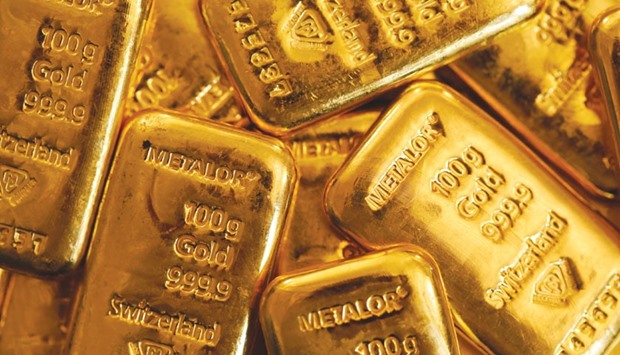The World Gold Council is seeking to create a global standard to make the metal’s use in Islamic finance more cost effective by eliminating disputes among scholars.
The 18-member council and Amanie Advisors issued a consultation draft in November to Shariah professionals and practitioners. The WGC has also held bilateral meetings with banks and investment funds, who say that such a template will lead to more gold-backed products, Natalie Dempster, its London-based managing director of central banks and public policy, said in a December 24 e-mail interview.
As the $2tn Islamic finance industry slows and sukuk sales falter, a new standard could be welcomed as differing perceptions of Shariah-compliance in Asia and the Middle East hinder development. Individual scholars currently vet gold products for conformity and Malaysian law firm Lee Hishammuddin Allen & Gledhill says there’s divided opinion on whether the commodity can be used as an underlying asset for Islamic bonds.
“The impact of such a standard could add greater diversity and confidence for investment opportunities,” said Samina Akram, the managing director of London-based consultancy Samak Ethical Finance Ltd “This may even open the doors to issuers and investors that perhaps may not have previously considered Islamic finance as a means to raise capital.”
Shariah-compliant financing includes sharing risk, prohibits any involvement in businesses deemed as unethical such as alcohol, endorses socially responsible investing, and forbids interest payments. To get around the latter, Islamic bonds pay returns based on an underlying asset in the form of a profit rate.
There is conflict among scholars as to whether gold is classed as a currency or a commodity, which probably harks back to Islamic finances’ early origins using gold coins. The precious metal is considered to be an item that is not to be bought and sold at a profit, at a different price or on a deferred payment basis, said Megat Hizaini Hassan, head of the Islamic finance practice at Lee Hishammuddin Allen & Gledhill in Kuala Lumpur. It is classed as one of the six Ribawi items: silver, dates, wheat, salt and barley.
“There are Shariah restrictions in using gold as an underlying asset for sukuk, as some say gold may be used as a medium-of-exchange but cannot be the subject matter of a trade except under strict conditions,” said Megat.
Samina at Samak Ethical said that although some scholars didn’t 100% approve of allowing gold to be used as an underlying asset, some have made exceptions given the shortage of other available alternatives.
The draft from the WGC and Amanie Advisors says that under Shariah law, gold is a currency but can also be regarded as a commodity. The document provides proposed standards for using the metal to back Islamic bonds, as capital in partnership contracts, as collateral for loans and for deposits.
“Practitioners need to be cautious when transacting with gold and need to ensure that they meet all the requirements as set out in the Shariah,” according to the draft. “This becomes more pertinent as Islamic financial services are constantly growing in sophistication, bringing with it the need for a greater understanding of the intricate matters of Islamic financial services and the application of the Shariah.”
Standard & Poor’s forecasts growth in Islamic finance assets will slow to single digits in 2016 from 10% to 15% in the past decade. Worldwide sales of sukuk dropped 28% last year to $34.7bn, the worst showing since 2010, data compiled by Bloomberg show.
“By making the consultation process as inclusive and far reaching as possible, we expect to reach global industry consensus on the standard during the consultation phase,” said the council’s Dempster. “The World Gold Council will then seek multiple endorsements of the standard by international-standard setting bodies and national regulators.”

One hundred gram gold bars are seen in this arranged photograph at Gold Investments bullion dealers in London. The draft from the WGC and Amanie Advisors says that under Shariah law, gold is a currency but can also be regarded as a commodity. The document provides proposed standards for using the metal to back Islamic bonds, as capital in partnership contracts, as collateral for loans and for deposits.
